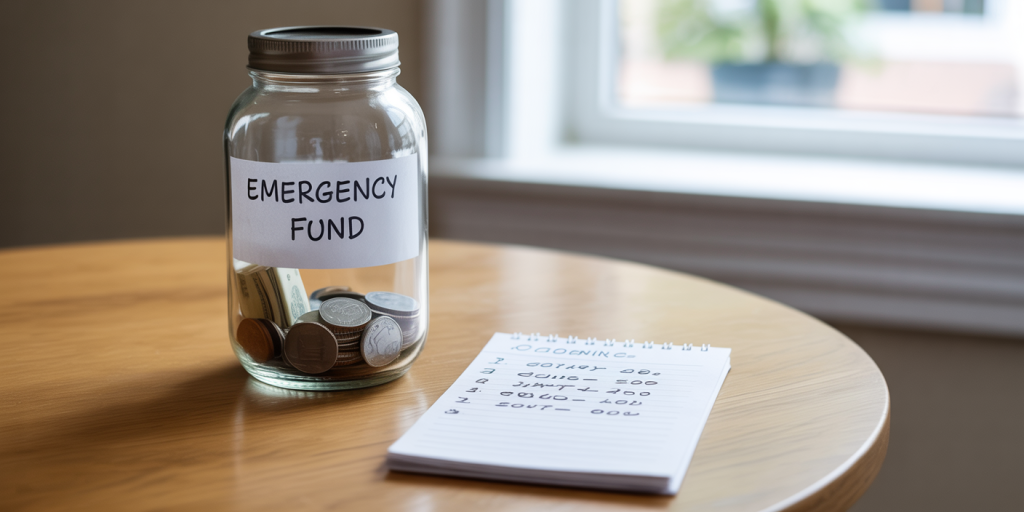How to Build a Healthy Relationship with Money
Introduction
Money is one of the most influential forces in our lives. It determines the quality of our housing, the food we eat, the experiences we can afford, and the future we’re building. Yet for many, money is also a source of anxiety, guilt, confusion, or avoidance.
A healthy relationship with money isn’t about having a high income or a six-figure savings account — it’s about feeling in control, making aligned decisions, and treating money as a partner rather than a problem. Whether you’re earning a little or a lot, this article will show you how to reset your mindset, develop powerful habits, and foster a respectful and sustainable relationship with your finances.
1. Understand Your Money Story
Your financial behavior today is shaped by your past. Take a moment to reflect on your money story:
- What messages did you hear about money growing up?
- Was money a source of stress, silence, or conflict?
- Did your caregivers demonstrate healthy or unhealthy money behaviors?
Understanding these influences helps you identify limiting beliefs and patterns that no longer serve you. From there, you can begin to rewrite your financial narrative with intention.
2. Identify Emotional Triggers
Money decisions are often emotional. Many people spend to soothe sadness, relieve stress, or seek status. Ask yourself:

- Do I shop when I feel anxious or bored?
- Do I feel guilty after spending?
- Do I attach self-worth to how much I earn or save?
Recognizing emotional triggers allows you to pause, reflect, and choose healthier coping strategies — like journaling, exercising, or speaking with a friend.
3. Replace Shame with Curiosity
Everyone makes money mistakes. Instead of falling into cycles of guilt and shame, shift your inner dialogue:
Instead of: “I’m terrible with money.”
Try: “What can I learn from this situation?”
Becoming financially empowered requires a growth mindset. Curiosity leads to action — and action creates change.
4. Set Meaningful Financial Goals
Money is a tool — not the end goal. Ask yourself:
- What does financial peace look like to me?
- Is it the ability to travel freely? Quit a job I dislike? Care for family?
Set SMART goals (Specific, Measurable, Achievable, Relevant, Time-bound) that reflect your values. For example:
- Save $500 in 3 months for an emergency fund
- Pay off $1,000 in credit card debt in 6 months
- Invest 10% of your monthly income for retirement
When your goals are aligned with what truly matters, you’ll be more motivated to stay consistent.
5. Track Your Finances Without Obsessing
Awareness is key. Track your income, expenses, savings, and debt using apps like YNAB, Mint, or simple spreadsheets.
Review your finances weekly — not obsessively. Aim for consistency, not perfection. Tracking builds clarity, and clarity empowers control.
6. Celebrate Progress, Not Just Milestones
You don’t need to wait until you’re debt-free or wealthy to celebrate. Every small win deserves recognition:
- Paid off a credit card? Celebrate.
- Stuck to your grocery budget? Celebrate.
- Added $20 to savings? Celebrate.
Celebrating progress keeps motivation high and reinforces healthy habits.
7. Create and Maintain Financial Boundaries
Boundaries are crucial for a healthy money mindset. Learn to say:
- “That’s not in my budget right now.”
- “I can’t afford that, and that’s okay.”
- “I’m not lending money at the moment.”
Whether with friends, family, or partners, setting financial boundaries protects your resources and supports your goals.
8. Practice Daily Gratitude
Constant comparison leads to scarcity thinking. Gratitude fosters abundance.
Start a daily gratitude practice:
- Write down three things you’re grateful for
- Acknowledge financial wins — no matter how small
- Focus on what money allows you to do, not just what you lack
Gratitude rewires your brain to recognize sufficiency over scarcity.
9. Automate Positive Habits
Make saving and bill-paying effortless with automation. Set up:
- Auto-transfers to savings right after payday
- Automatic bill payments to avoid late fees
- Auto-investing for retirement or emergency funds
Automation eliminates decision fatigue and keeps you on track.
10. Educate Yourself Regularly
Financial literacy is a lifelong journey. Start small and keep learning:

- Podcasts: Afford Anything, The Ramsey Show, Her First $100K
- Books: The Psychology of Money, Your Money or Your Life
- Courses: Free platforms like Coursera, Khan Academy, or local workshops
Confidence grows through knowledge — and knowledge removes fear.
11. Treat Money Like a Relationship
Imagine if your relationship with money were a person:
- Do you ignore them until there’s a crisis?
- Do you obsess over every move they make?
- Or do you communicate, show respect, and make long-term plans?
A healthy money relationship includes consistency, patience, boundaries, and care — just like with a close friend or partner.
12. Talk About Money Without Fear
Talking about money doesn’t have to be taboo. Open dialogue with partners, friends, or mentors leads to growth.
Discuss:
- Spending habits
- Shared goals
- Financial concerns
- Plans for the future
Use “I” statements and a judgment-free tone. Financial transparency can reduce stress and strengthen trust.
13. Detach Self-Worth from Net Worth
Your value is not determined by your income, savings, or job title. Money is a tool — not a reflection of character.
Remind yourself:
- I am worthy regardless of my bank account
- Financial setbacks don’t define me
- I can grow at my own pace
When you separate identity from finances, you create room for grace and resilience.
14. Schedule Regular Financial Check-ins
Set a weekly or monthly money check-in. Review:
- Income and expenses
- Progress on goals
- Adjustments needed
Make it enjoyable: play music, sip tea, light a candle. Money management should feel empowering — not stressful.
15. Forgive Yourself for Past Mistakes
We’ve all made poor financial choices. Holding onto guilt serves no one. Instead:
- Acknowledge the mistake
- Reflect on what you’ve learned
- Create a new plan
Financial healing starts with self-compassion and a commitment to change.
16. Surround Yourself with Financially Conscious People
Your environment influences your behavior. Connect with people who:
- Value budgeting and saving
- Speak positively about money
- Share financial tips and goals
Consider joining online communities like Reddit’s r/personalfinance, local support groups, or following financial educators on social media.
17. Define Wealth in Your Own Terms
Forget what Instagram or society says. Wealth is personal.
For you, it might mean:
- Being debt-free
- Having time with loved ones
- Funding your creative passions
- Feeling secure, even on a modest income
When you define wealth clearly, you stop chasing someone else’s version of success.
18. Build an Emergency Fund (Even Slowly)
Emergency funds reduce anxiety and prevent financial spirals during unexpected events. Start small:
- Save $10 a week
- Use cashback, refunds, or gig money
- Store it in a separate savings account
Over time, aim for 3–6 months’ worth of essential expenses.

19. Visualize Your Progress
Use charts, graphs, and visuals to track your journey:
- Color in savings goals
- Mark debt milestones
- Build a vision board of financial dreams
Seeing your progress keeps your goals present and real.
20. Be Patient with the Process
Changing your financial mindset and habits takes time. Don’t rush. Don’t compare. Just keep going.
Every step you take — every tracked expense, every dollar saved, every thoughtful decision — strengthens your relationship with money.
Final Thoughts
Building a healthy relationship with money doesn’t require perfection. It requires awareness, compassion, and commitment. When you treat money with respect, patience, and intention, it becomes a tool for building a life of stability, freedom, and joy.
You don’t need to be rich to feel empowered. You simply need to understand your values, take consistent action, and believe that financial peace is possible — because it is.
Start small. Be kind to yourself. And know that every positive decision you make brings you closer to the life you deserve.
